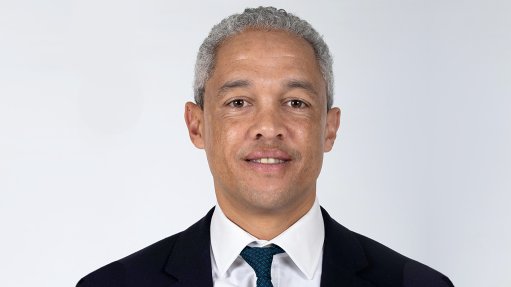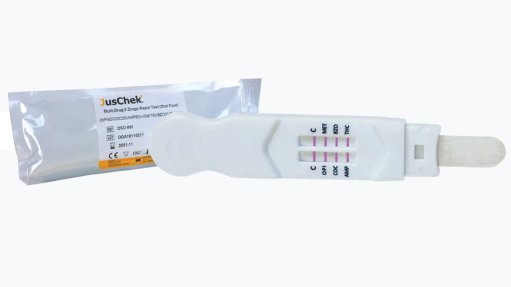When you hear the signal
It would cost you 47.5c. This begs the question: When last did you phone 1026? This should not be confused with 1023, the directory enquiries number you would dial when looking for a telephone number. In case you were wondering, both numbers are still in operation.
The 1026 number is, in a way, the successor to the public time signal, normally a striking clock. When last did you hear a clock chime? Not even the most famous of clocks – Big Ben – is chiming every hour, having been silenced as repairs continue, now expected to be completed in 2022.
The 1026 number is a time signal, a telephone speaking clock, to be exact. It is an audible signal used as a reference to determine the time of day. The first telephone speaking clock service was introduced in France on Valentine’s Day – February 14 – in 1933. It is said that time signal use peaks on New Year’s Eve when diallers want to know the exact time for New Year’s Day.
I remember 1026 vividly. It was the number to phone when you wanted to know the time, or simply to waste time. It was a free call. That was when using the phone was expensive, when the landline telephone could be locked with a key. But the 1026 call was free. Even as the landline has made way for the cellphone, the 1026 number has endured. If you have your cellphone on hand, you might be tempted to dial the four digits. But now there is a charge. Dialling 1026 will elicit the message: “Your call will be charged at R2.85 per minute.” This is 47.5c for every ten seconds during which the signal sounds.
This is quite a shock, is it not? In a world where we expect so much for free – yes, I know there is no such thing as a free lunch – we definitely don’t expect to pay for things that were previously free. Right? This must surely be against the law of nature, and if it is not, it should be, particularly considering that the voice-over artist, Helen Naudé – the 1026 time signal voice – long before robotic voices became the norm, was remunerated.
This made me wonder as to what else we are paying for that was free in the past. The intention is not to offer a comprehensive list, but to alert you to the rise of what economists call a ‘user charge’. As the name suggests, a user charge is for the use of a product or service.
Do you remember a time when you could travel on any of South Africa’s roads free of charge? Yes, I accept that if you were a diligent taxpayer, or your parents were, they did contribute, but they did not pay a toll, did they? But now we all do. If you believe the assertion in brochures, or on government websites, that tolls are needed to build new roads, you neglect to ask what your tax money is funding. And no, it is not that things are more expensive. Things have always been expensive. It is rather a case of efficiency, or a lack thereof.
So, what is still free? Well, do not hold your breath, as you are not going to save any money by doing so. That said, you might well not be inhaling the quality of air that you used to inhale, but as polluted as the air is, it is still free. On the positive side, the polluters are, since January 1, liable for a carbon tax of R134 per tonne of carbon dioxide equivalent.
Article Enquiry
Email Article
Save Article
Feedback
To advertise email advertising@creamermedia.co.za or click here
Announcements
What's On
Subscribe to improve your user experience...
Option 1 (equivalent of R125 a month):
Receive a weekly copy of Creamer Media's Engineering News & Mining Weekly magazine
(print copy for those in South Africa and e-magazine for those outside of South Africa)
Receive daily email newsletters
Access to full search results
Access archive of magazine back copies
Access to Projects in Progress
Access to ONE Research Report of your choice in PDF format
Option 2 (equivalent of R375 a month):
All benefits from Option 1
PLUS
Access to Creamer Media's Research Channel Africa for ALL Research Reports, in PDF format, on various industrial and mining sectors
including Electricity; Water; Energy Transition; Hydrogen; Roads, Rail and Ports; Coal; Gold; Platinum; Battery Metals; etc.
Already a subscriber?
Forgotten your password?
Receive weekly copy of Creamer Media's Engineering News & Mining Weekly magazine (print copy for those in South Africa and e-magazine for those outside of South Africa)
➕
Recieve daily email newsletters
➕
Access to full search results
➕
Access archive of magazine back copies
➕
Access to Projects in Progress
➕
Access to ONE Research Report of your choice in PDF format
RESEARCH CHANNEL AFRICA
R4500 (equivalent of R375 a month)
SUBSCRIBEAll benefits from Option 1
➕
Access to Creamer Media's Research Channel Africa for ALL Research Reports on various industrial and mining sectors, in PDF format, including on:
Electricity
➕
Water
➕
Energy Transition
➕
Hydrogen
➕
Roads, Rail and Ports
➕
Coal
➕
Gold
➕
Platinum
➕
Battery Metals
➕
etc.
Receive all benefits from Option 1 or Option 2 delivered to numerous people at your company
➕
Multiple User names and Passwords for simultaneous log-ins
➕
Intranet integration access to all in your organisation

















